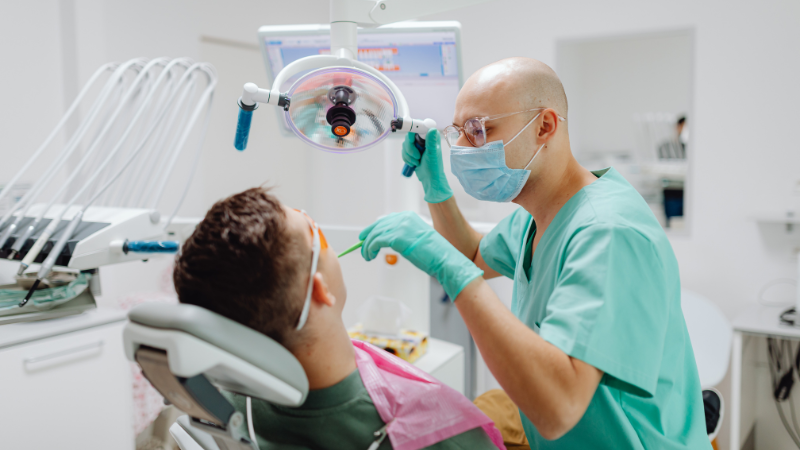Dentistry demands precision, empathy, and consistent clinical excellence. Patients expect their dentist to be calm, focused, and fully present, no matter how busy the day has been. What many clinicians do not realise is that professionalism is not only about skill and behaviour. It is also shaped by the way you care for yourself outside the operatory.
Self care is not indulgence. In dentistry, it is a professional responsibility. The state of your physical and mental health directly influences the way you diagnose, communicate, and deliver treatment. When you look at professionalism through that lens, self care becomes part of your clinical toolkit.
Why self care matters for clinical performance
Dentistry is physically demanding. Long hours in static postures, high concentration tasks, and back to back patient interactions all place pressure on your body and mind. Research consistently shows that fatigue affects fine motor skills, decision making, and patience, which are all central to high quality dentistry.
When dentists are well rested and supported by good lifestyle habits, several things improve:
• Cognitive clarity during treatment planning
• Tolerance of stress and unexpected clinical challenges
• Precision during restorative or surgical work
• Ability to communicate calmly with anxious patients
• Overall endurance throughout a long clinical day
Professionalism is reflected in the stability and consistency of your clinical work. Self care strengthens both.
Emotional wellbeing and patient communication
One of the most overlooked aspects of professionalism is emotional regulation. Dentistry can be emotionally taxing. You are managing patient fears, financial concerns, time pressures, and your own standards of perfection.
When emotional wellbeing is neglected, communication suffers. Dentists report being shorter with patients, less patient with questions, and less confident during complex discussions. On the other hand, clinicians who prioritise sleep, mental rest, and work life boundaries communicate more clearly. They listen better. They explain more calmly. They build trust faster.
Patient confidence in you is directly tied to your ability to remain composed and present. That is not possible if you are exhausted or overwhelmed.
The professional risks of burnout
Burnout has become more visible in dentistry over the past decade. It affects early career dentists, practice owners, associates, and specialists alike. Burnout is not simply being tired. It is a chronic state of emotional and physical depletion that compromises judgement, accuracy, and empathy.
Signs of burnout include:
• Detachment from patients
• Reduced attention to detail
• Slower clinical decision making
• Irritability and frustration
• Declining enthusiasm for dentistry
• Avoidance of complex cases
From a professionalism standpoint, burnout threatens the quality and safety of care. It also reduces career satisfaction, making long term practice unsustainable. Self care protects against burnout and supports a stable, high performing career.
How self care supports ethical practice
Dentists are held to high ethical standards. One of those is the duty to provide safe, competent care. If you are exhausted, emotionally overloaded, or running on autopilot, it becomes harder to meet that standard.
Ethical practice relies on:
• Sharp clinical judgement
• Clear communication of risks and options
• Ability to give patients your full attention
• Accurate assessment of complexity
• Appropriate referral decisions
These skills weaken when self care is neglected. A well supported dentist is simply a safer dentist.
What real self care looks like for dentists
Self care is not bubble baths and motivational quotes. It is the set of habits that protect your body, mind, and long term career.
Meaningful self care includes:
• Quality sleep that supports cognitive performance
• Regular movement to counteract static work postures
• Nutrition that maintains energy and concentration
• Scheduled rest between high demand appointments
• Continuing education to reduce uncertainty and stress
• Healthy boundaries with work hours and digital communication
• Mentorship and community support for difficult cases
These foundations are small but powerful. They help you show up as the clinician your patients trust.
The role of continuous education in self care
Self care is not only physical. It also involves reducing the professional stress that comes from uncertainty. Many dentists feel overwhelmed not because they lack skill, but because they lack structured systems for treatment planning, communication, or case analysis.
High quality continuing education reduces this stress. When you understand not only the clinical process but the reasoning behind it, your confidence grows. Procedures feel less risky. Decisions feel clearer. Your day becomes smoother. Education, in this way, is a form of professional self care. It lightens mental load and strengthens clinical confidence.
Professionalism begins with how you treat yourself
The best clinicians are consistent, calm, skilled, and patient focused. These qualities do not appear by accident. They are built on a foundation of self care and self respect. When you care for your physical and mental wellbeing, you strengthen every professional behaviour that patients value.
Dentistry is both demanding and deeply rewarding. Prioritising self care ensures you can show up as your best self, deliver your highest quality work, and build a career that feels sustainable and fulfilling.




